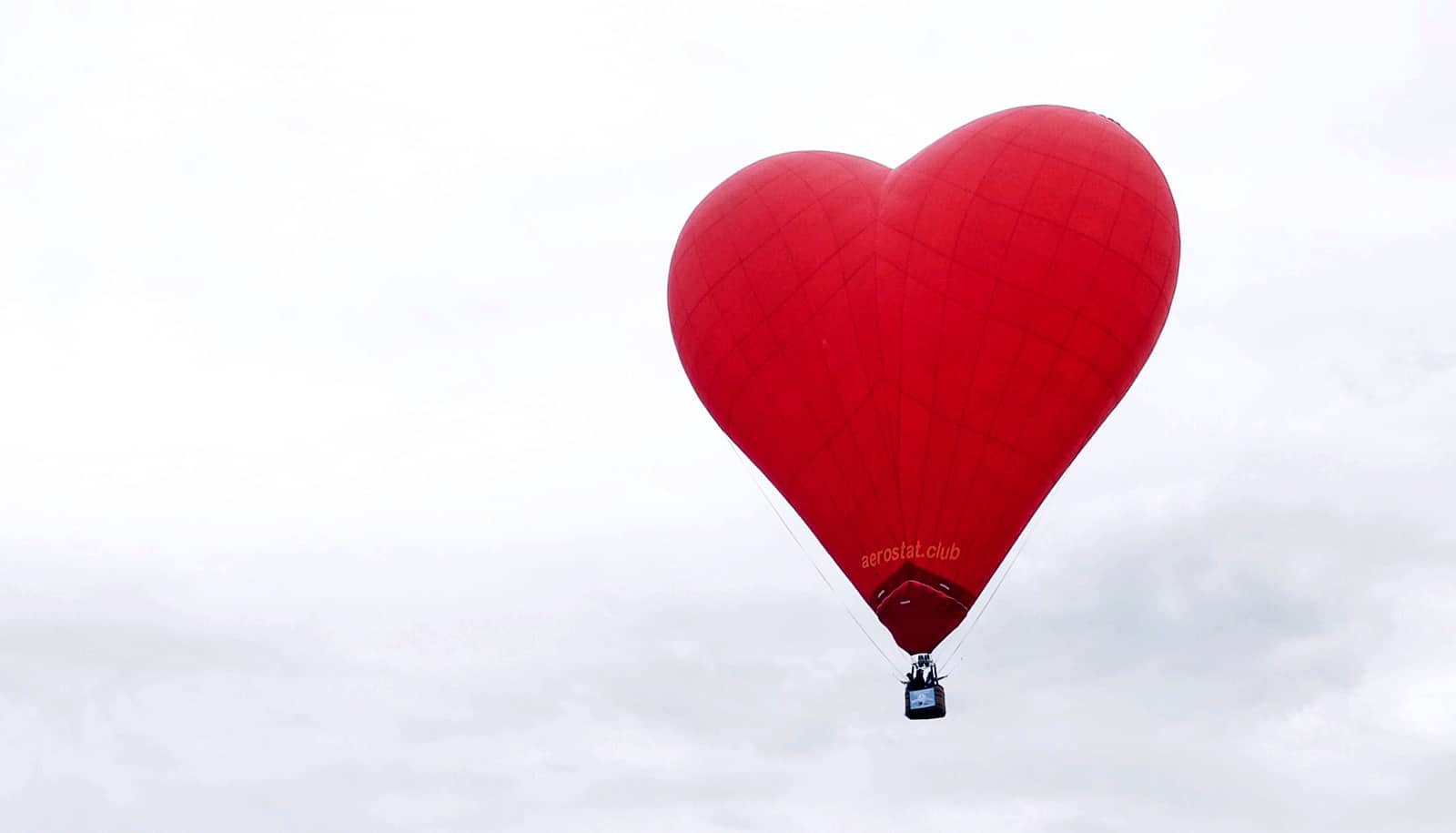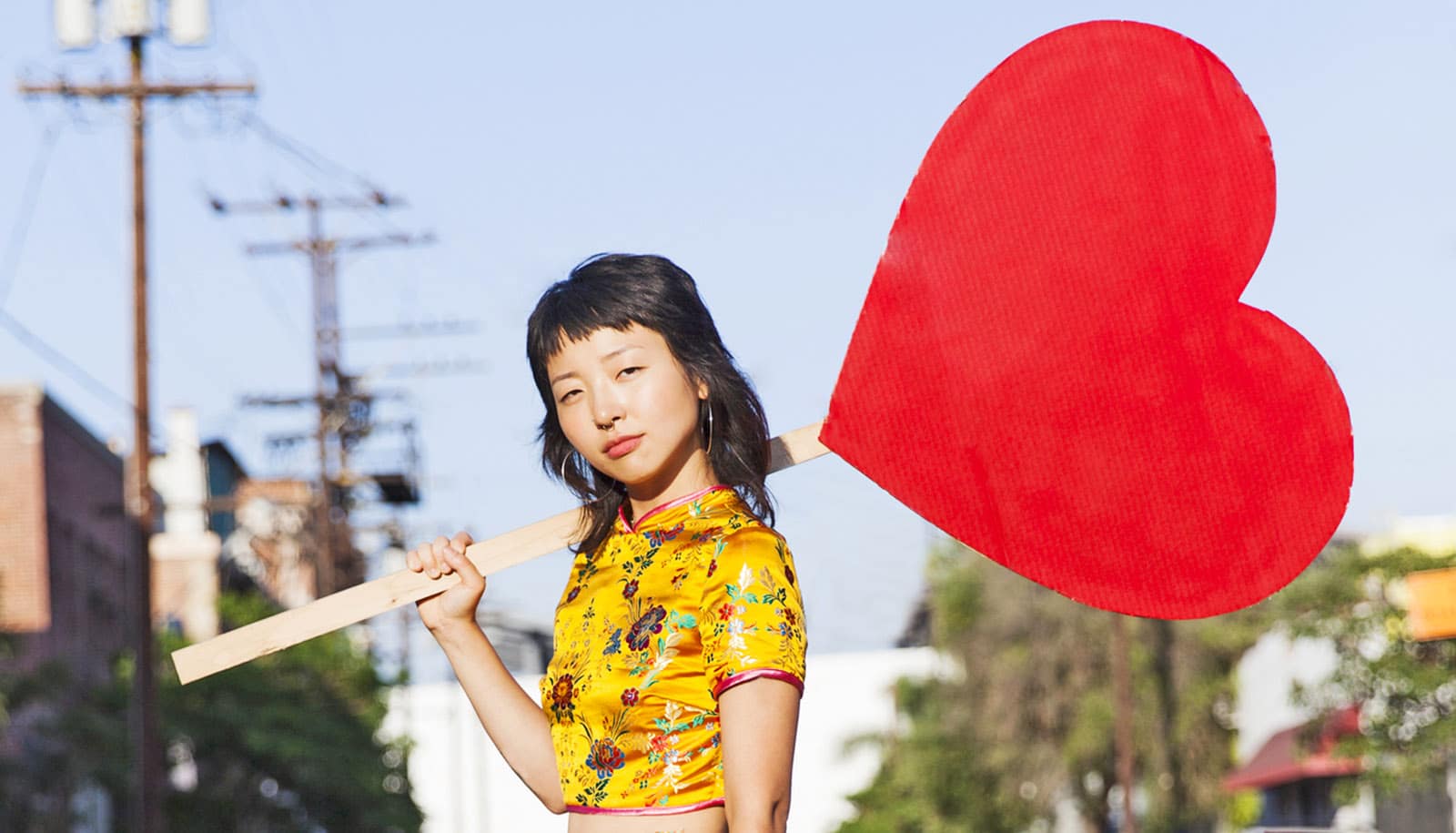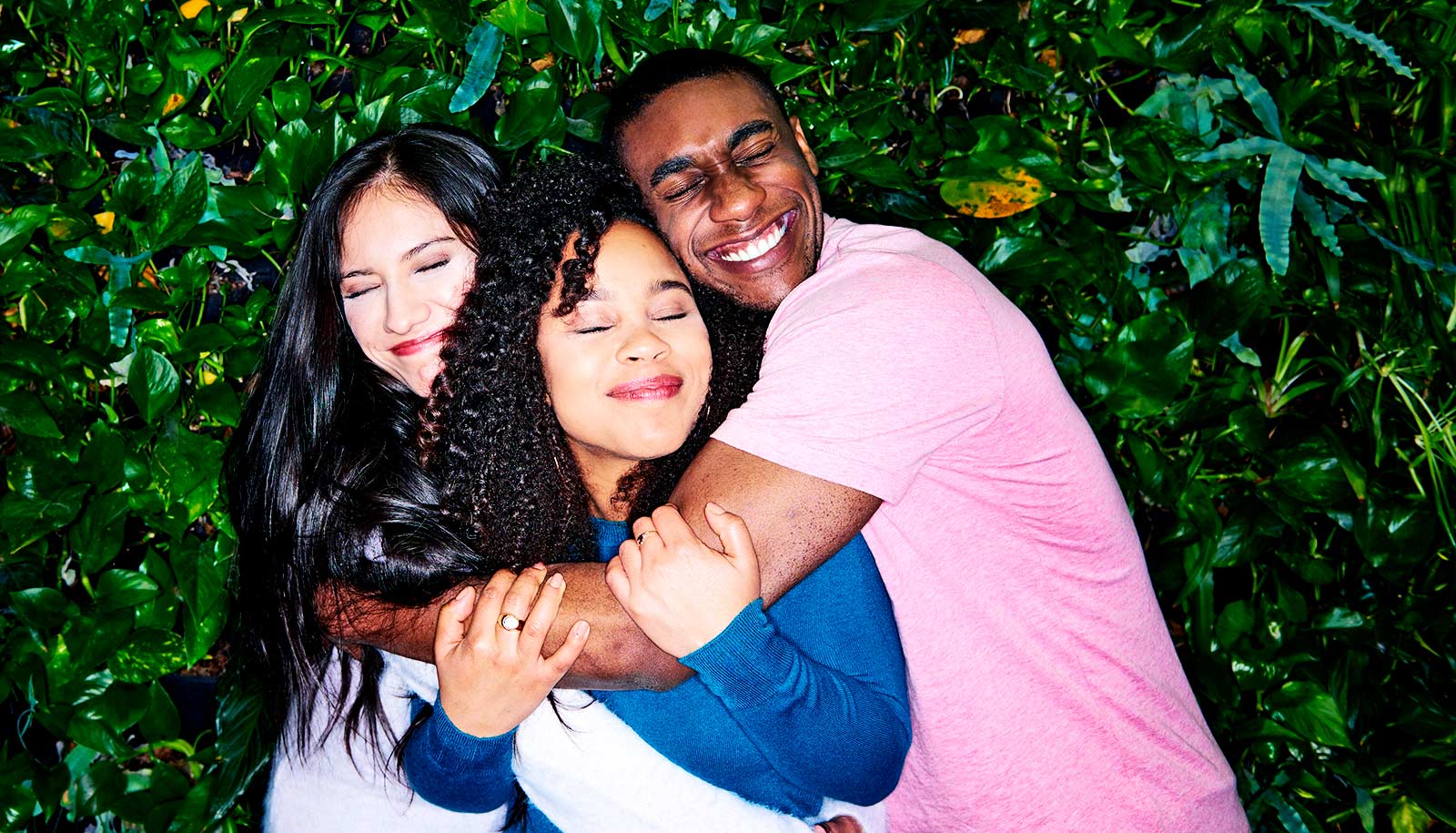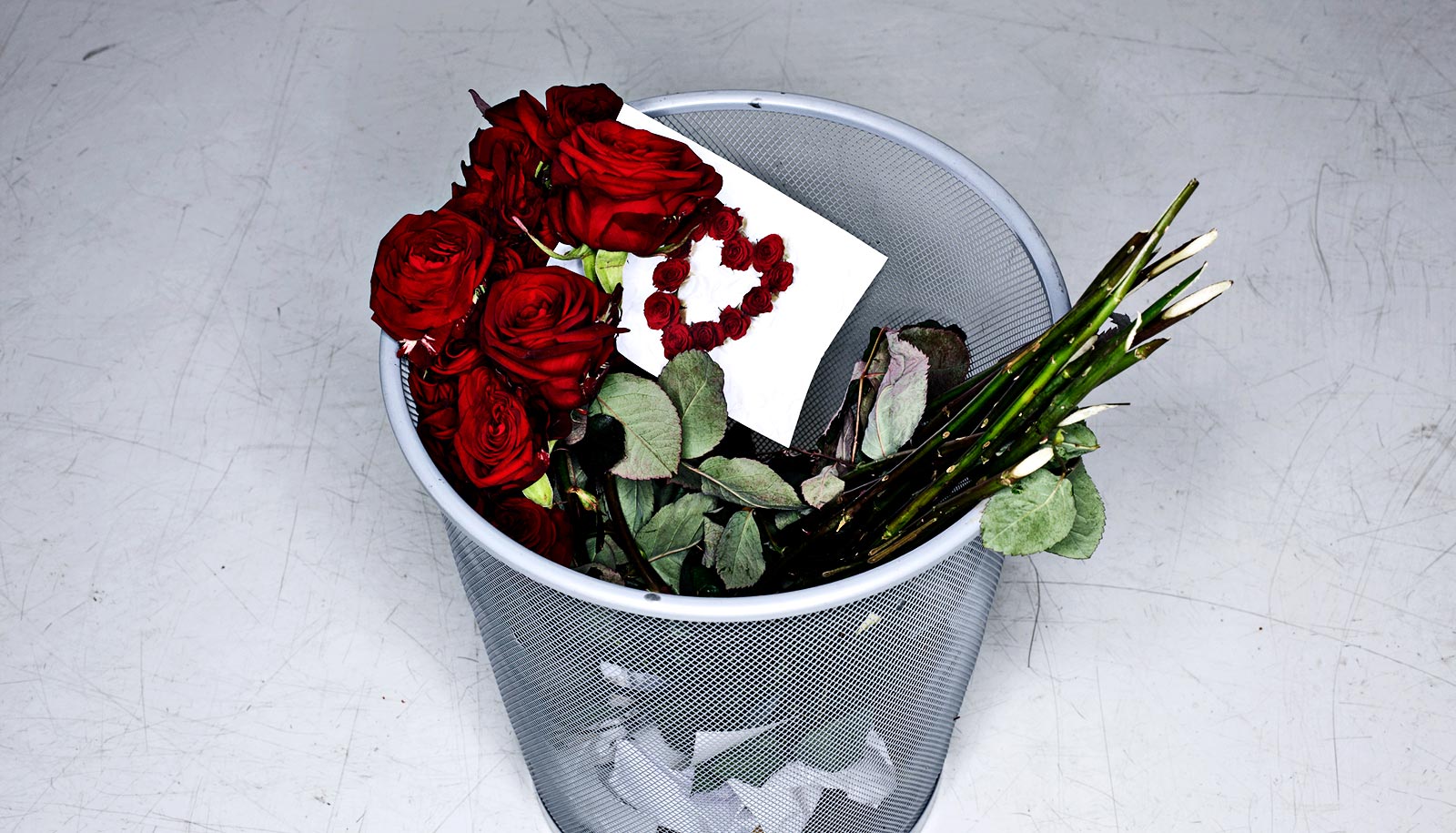The strongest relationships are built on efforts couples make every day, not just on holidays—so don’t fret if your Valentine’s Day is a flop.
“The more ridiculous the date, the better in my opinion.”
As Valentine’s Day approaches, people prepare to woo their romantic partners with dinner reservations, flowers, and expensive gifts. Some of the extravagance will be well-received. And sometimes, February 14 turns out to be a dud. But there’s hope.
Kale Monk, assistant professor at the University of Missouri, has done extensive research in how couples in romantic relationships deal with transitions and instability.
Here, he offers some insight on the importance of Valentine’s Day to relationships and how partners can show each other they care on Cupid’s favorite day:
What advice do you have for someone trying to have a successful Valentine’s Day?
The true key to a successful Valentine’s Day—and a relationship as a whole—is not the big grand gestures, but the relationship building and maintenance on a day-to-day basis. Couples can come up with a few daily rituals that give both people in the relationship joy. It’s important to celebrate your relationship continuously, not just during holidays.
While an anniversary or Valentine’s Day may be a good excuse to show affection for your loved one, partners who have regular time set aside to connect and engage in fun activities or “date nights” together such as dancing, attending concerts, hiking, or biking, report more love and satisfaction than those who don’t. So celebrating our relationships should not just be a once a year event.
We should connect and enjoy each other regularly. When we engage in playful, novel, or exciting activities it gives us an opportunity to bond and attribute the joyful experience to each other. “Couples who play together, stay together!”
A famous research study had romantic partners come into a lab where researchers tied them together, had the partners get on their hands and knees, and push a foam object across the room. It was as goofy as it sounds. The partners who engaged in this silly activity reported greater relationship satisfaction than those randomly assigned to engage in a more mundane activity. So, it doesn’t have to break the bank. The more ridiculous the date, the better in my opinion. Do something that makes both of you laugh and enjoy each other’s company.
How can couples come up with inspiration for dates like this?
As a former couple’s therapist, I would have partners create lists of activities they think would be fun and exciting to do together. They would cut the list so that each individual piece had one activity on it, and put those in a jar or bowl. When a weekly date night comes around or you have some free time, partners would mix them up and draw a slip from the jar for some spontaneous fun.
Given partners should enjoy the experience, communicating with and getting to know your partner (e.g., what they enjoy or desire) is critical, and going on dates also helps partners connect in this way. People change, and partners can forget that in long-term relationships. Getting to know each other actively over time shows you value and appreciate each other. You want to continue to get to know them as the two of you grow. That’s why the day-to-day activity matter.
Say a couple has been putting in the work and wants to have a fun night on Valentine’s Day to celebrate their relationship. What have you found to be most successful?
Once you know your partner and their comfort zone, planning events or holidays becomes easier. Rituals or traditions like anniversaries and Valentine’s Day can be meaningful for partners, so if it is, use it as an excuse to go on that big date you’ve been wanting to go on. Take the opportunity to give your partner something they’ve been needing.
However, you want to make sure these romantic gestures are within your partner’s comfort zone. It’s ok to push the boundaries a bit to make things novel and exciting, depending on the comfort you have with each other.
Anything that is novel, creative, spontaneous and makes people feel excited about the relationship is going to be helpful. The reason exciting and enjoyable experiences are beneficial is because they allow your partner to associate a particular feeling with you, usually in these cases, a positive one. But if you make your partner uncomfortable, they might not have a good time, which could negatively affect your relationship. That’s why communication and awareness of our partners is important.
Would you say gifts are an important part of the holiday as well?
Gifts can certainly be challenging as most people have cost and time restrictions. Getting your partner something is a great idea, but similarly to how partners respond to dates, it should be something that is practical, will they enjoy it or make their life better.
The other important thing to note about acts of kindness, like gifts but from a broader perspective, is it’s important that your partner is able to perceive it as an act of kindness or as something that betters the relationship.
For example, it’s more important for your relationship satisfaction that your partner perceives or notices that you did the dishes than it is that you actually did the dishes. Perception is key in a relationship. People like to know that they are valued and someone is making an effort for them.
When your partner engages in an act or gesture you appreciate, research shows it’s also extremely important to express that appreciation to your partner.
Expressing gratitude is critical. It forces us to pay attention to the things our partner is doing that we like in order to actively thank them. This makes partners feel appreciated and valued, and it provides a roadmap to know how we can keep pleasing each other. And expressing gratitude can be contagious!
So, reciprocate those nice things by engaging in kind gestures or acts of caring for your partner in return. Leave them a loving note in their pocket or make their favorite meal for dinner.
What other advice would you give to couples?
Build out your “love map.” This is a term that couple’s therapists use to describe making space in your brain for your partners by really getting to know them. You can even purchase love map cards and play something similar to the Newlywed Game.
It helps to learn more about your partner’s interests, desires, concerns, and even their favorite hobbies. You might ask questions like, “Who are your best friends?” “What was your favorite vacation?” or “Who is your least favorite person?” These things change over time, so keep talking about them.
Also, ask meaningful questions like, “What are you most concerned about or looking forward to?” or “What are your favorite ways of being soothed when stressed?” These types of questions are much more beneficial to your relationship than platitudes like “How are you?”
And be sure to savor those moments, by really listening and asking follow-up questions to show genuine interest. This act of “turning toward” one another promotes bonding and deepens intimacy.
Finally, talk specifically about the relationship, even if you’ve been married for a long time. What do you enjoy most about your relationship that you could do more? Where do you want your relationship to be in 10 years? This will help ensure you and your partner are on the same page moving forward.
Source: University of Missouri



